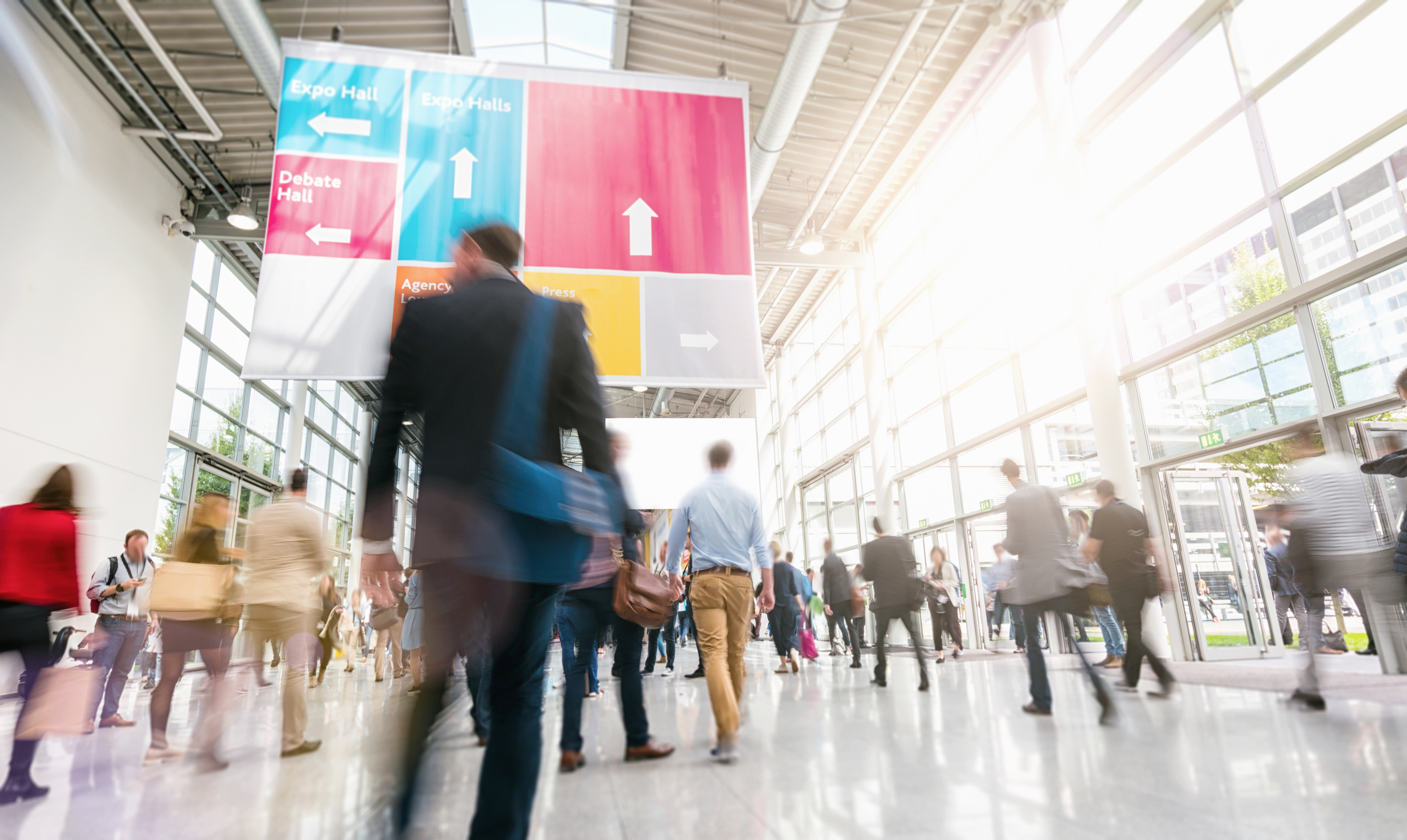 As the battle with the COVID-19 pandemic now runs into months, there is a realisation that we have a battle on our hands that will last for a number of years. There is no exit in the traditional sense, we will need to live with and adapt to an environment which has this virus. New behaviours and habits are being formed that will be a permanent feature of our life. Trends that we have seen coming will now rapidly pick up momentum and shift the way we live and do business. There will be a new normal but we are still trying to understand what that will be! What does this mean for our industry going forward?
As the battle with the COVID-19 pandemic now runs into months, there is a realisation that we have a battle on our hands that will last for a number of years. There is no exit in the traditional sense, we will need to live with and adapt to an environment which has this virus. New behaviours and habits are being formed that will be a permanent feature of our life. Trends that we have seen coming will now rapidly pick up momentum and shift the way we live and do business. There will be a new normal but we are still trying to understand what that will be! What does this mean for our industry going forward?
Face-to-face will remain a vital part of how we socialise and do business but it’s going to look different:
– Exhibitions are likely to kick off earlier in the east versus the west.
– In Europe, there are many events that have been deferred to the last 2 quarters. The chances of these running now must be viewed as slim, better to defer to 2021, stick to existing time slots and focus on delivering a compelling event next year. Trying to squeeze deferred events out of their normal cycle in an environment where, for regulatory and health reasons, travel is not going to be easy or even possible, will deliver suboptimal performances in the short-term and damage long-term prospects.
– There will need to be a clear and probably revolutionary approach to deposits to overcome the position of many companies, to sit on their hands and hold onto cash. Cash deposits for shows deferred from 2020 to 2021 are going to be difficult to retain and will place enormous pressure on organisers. Going forward, should we be looking at some form of escrow system that would give our customers the confidence that their money is safe? We have no ATOL in our industry.
– The industry must have a standard unified approach to hygiene and social distancing that would be in place for every event (this is already being worked on). Vital for giving nervous visitors the confidence to mingle with hundreds or thousands after a long spell in isolation. There will be a cost here and an impact on numbers of attendees at our events.
– What we have all experienced is going to have a material and long-term impact on our view of the need to travel. There are opinions that this will also apply to the office when so many have been able to work productively and happily from home. We must expect visitor numbers to decline in the short term and there is every chance they will never reach the norms that we have previously enjoyed. There is now a fundamental shift happening in the way we will communicate, socialise and do business, which will be irreversible.
– Our events reflect the industries we serve. Certain of those industries are experiencing shifts that will permanently reshape them. Any events associated with high street retailing, hospitality, and travel, for example, will need to be radically reengineered if they are to survive. Equally, there are a number of sectors such as medical, pharmaceutical, biotechnology communications, for example, which will experience significant benefit from all of this. Our portfolios will need to be reshaped for optimum performance in the future.
– Business travel has just undergone a paradigm shift. People WILL come to our events but only if they view them as must-attend. Given how many are currently working from home and will continue to do so will change the way they look at the the need to travel and particularly internationally. Given that recent UFI research identified a worrying ambivalence to the efficacy of events, this will only become more pronounced. We are likely to see smaller events, with perhaps an emphasis on regional and national, with the international events being most affected, certainly in the near-term. This will be influenced by governments’ needs in the future re insurance policies against international supply chain breakages, by building stronger local expertise and manufacturing capacity. We should also not ignore the hospitality/entertainment element of our events which will not function in the future as it has in the past.
– Once again, what we are currently experiencing is creating a material and long-term shift in business behaviour -not only the need to travel but also the way we interact and do business. Just as with retail, all of us will need an important online, as well as face-to-face, element to our business. We will need to be more regularly engaged with our customers with online offerings throughout the year to complement our face-to-face events. Those who don’t make the shift will struggle to survive. This will effect revenue sources and the margins overall but we will remain relevant. A lot has already been discussed about virtual events but the answer will be in a much broader and more comprehensive set of solutions, with content and education at the core.
– On the digital subject, communications have just shifted further online. How we go to market will need to reflect this. Our events will need to be compelling versus nice to attend. Delivering accurate and precise connections between buyer and seller will be viewed as a basic requirement by our customers. Data analytics and mining will underpin our ability to deliver.
– The shape and size of our events will be affected in the short-to-medium-term. The larger companies will be re-evaluating their need, smaller-to-medium size the cost effectiveness. We will need to relook at our pricing models, overall costs of exhibiting in a radical review of whether these old models which have survived albeit under pressure are now fit for purpose in the future. Companies re-evaluating the need for all their expensive office space will be running that same slide rule over our events. Coronavirus preys on people with existing conditions; how many events have existing conditions before the pandemic? The failure rate may be similar!
– In an industry that has just seen a flurry of high multiple deals in the last few years, this has just been recalibrated to more modest levels!
We should have confidence in the enduring need to meet face to face and therefore the future of our industry. However, our industry is going to look different and will need to act differently. Bold leadership in 2020 will determine the long-term health of our industry.







As always Mr. Rusbridge delivers a clear and precise view of the Trade Show business I totally agree with his point of view about content and education becoming the the CORE for F2F
Wise words. Regarding the need for escrow facilities, could I recommend Grant Snider at http://www.meetingescrow.com
Good summary and industry look forward. Our industry has been undergoing significant changes over these past few years and I believe Covid-19 has accelerated 3 years of future trends into NOW. The question of Why Should I Attend Your Tradeshow is the key question going forward. We have to re-think the VALUE we deliver, that is not available elsewhere, before someone will spend money to visit our shows. NOW has proven that everything is available on-line. Business can be done on-line. The internet capabilities can handle the entire world of video communications. People are learning they don’t HAVE TO travel to learn about new products and make product purchases. Cash is KING.
As an industry we will need to clearly demonstrate COMPELLING VALUE and MEASURABLE ROI. Also, as an industry we are going to have to learn that our business model has to change. A look at this change is available in my book “The Modern Digital Tradeshow” (FREE http://www.moderndigitaltradeshow.com). We have to start now to see our new future and the new position we occupy in the customer journey map. We need new skill sets in our organizations and we need a larger variety of offerings to keep pur customers engaged with us 24/7.
sorry but i think the biggest change is that all
events will
be regional. Getting people to travel in mass numbers wont be a reality. it is going to require event brands to produce three or four events in a year regionally. The day of the world wide mega event may be over
Thank you Micke and Nick,
With reference to “Delivering accurate and precise connections between buyer and seller will be viewed as a basic requirement by our customers. Data analytics and mining will underpin our ability to deliver”. We are a startup company in Sweden that have developed a contactless solution for trade fairs that we believe will increase Return of Event for both Exhibitors and Visitors. We would like to get in contact with organizers in order to help them achieve the goals you mention.
If any organizer are interested to further explore how, please contact me or visit our website.
Kind regards,
Pierre Rågstad
Managing Director
Fairyscope
+46 72 748 7170
A great article as well as very insightful. For me the most important element from the above is, “Our events will need to be compelling versus nice to attend. Delivering accurate and precise connections between buyer and seller will be viewed as a basic requirement by our customers. Data analytics and mining will underpin our ability to deliver.”
Some good points and certainly a time gor reflection and change. Recent relaxation in the UK for social activities such as golf and meeting in small groups demonstrates how we crave human, face to face interaction.
Events, by there nature offer a unique opportunity to share, interact, chat, laugh, catch up and look at every aspect of an industry. Without this we become isolated and totally reliant on our abilities to source solutions online, and rely on the strength of our social networks.
At some point mass gatherings will need to take place. Sport, conferences, family gatherings, concerts and many other enjoyable pass times will happen again – demand for these is not going to stop, finding ways to make them safe and enjoyable is our challenge.
My UFI Europe speech will shed more light on the trends ahead for our industry